Neuroscience
-
 Neuroscience
NeuroscienceSniffing out human pheromones
A new review argues that most of the chemicals labeled human pheromones, and the experiments behind them, don’t pass the smell test.
-
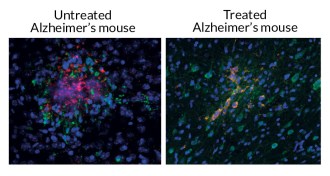 Neuroscience
NeuroscienceUltrasound attacks Alzheimer’s plaques
A new study offers clues to how ultrasound may work as a treatment for Alzheimer’s disease.
-
 Neuroscience
NeuroscienceElectrical zap of cells shapes growing brains
The electric charge across cell membranes directs many aspects of brain development, and changing it can fix certain brain birth defects.
-
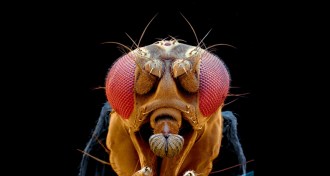 Neuroscience
NeuroscienceMapping aggression circuits in the brain
Using optogenetics and other techniques, scientists are tracing connections to and from the brain’s aggression command center.
By Susan Gaidos -
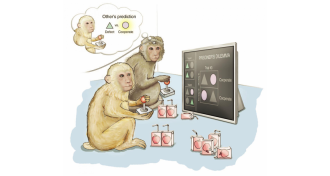 Neuroscience
NeuroscienceBrain cells predict opponent’s move in game-playing monkeys
Newly discovered brain cells help monkeys predict whether a companion will cooperate.
-
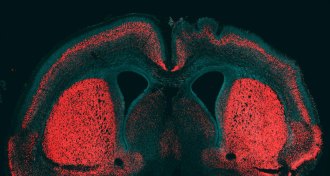
-
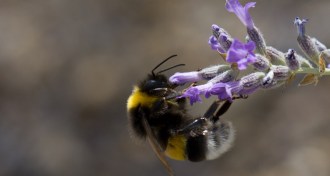 Neuroscience
NeuroscienceBees may merge their flower memories
Bumblebees sometimes prefer fake flowers with the combined patterns and colors of ones seen before, suggesting they merge memories of past experiences.
-
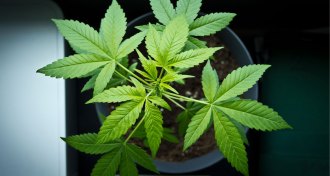 Neuroscience
NeuroscienceBlame pot munchies on nerve cells that normally nix appetite
Pot munchies demystified: Marijuana hijacks fullness nerve cells, making them send hunger signals instead.
-
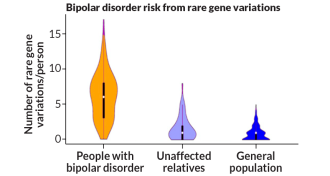 Neuroscience
NeuroscienceBipolar risk boosted by accumulation of rare versions of genes
A buildup of rare versions of genes that control nerve cell activity contributes to the genetic risk of bipolar disorder.
-
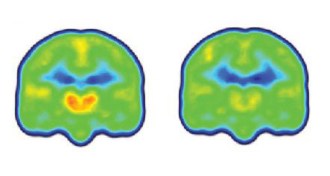 Neuroscience
NeuroscienceChronic pain treatments may get boost from high-tech imaging
Advanced imaging may reveal how well chronic pain treatments work.
-
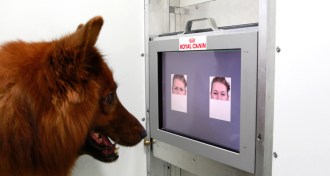 Animals
AnimalsWhen you’re happy and you show it, dogs know it
A new test using pictures of halves of human faces challenges dogs’ abilities to read people’s emotions.
By Susan Milius -
 Health & Medicine
Health & MedicineGlowing amino acid lights up growing brain cancer
By adding a tracer compound that sticks to the amino acid glutamine, researchers may be able to discern and monitor cancerous tissues in the brain.
By Nathan Seppa